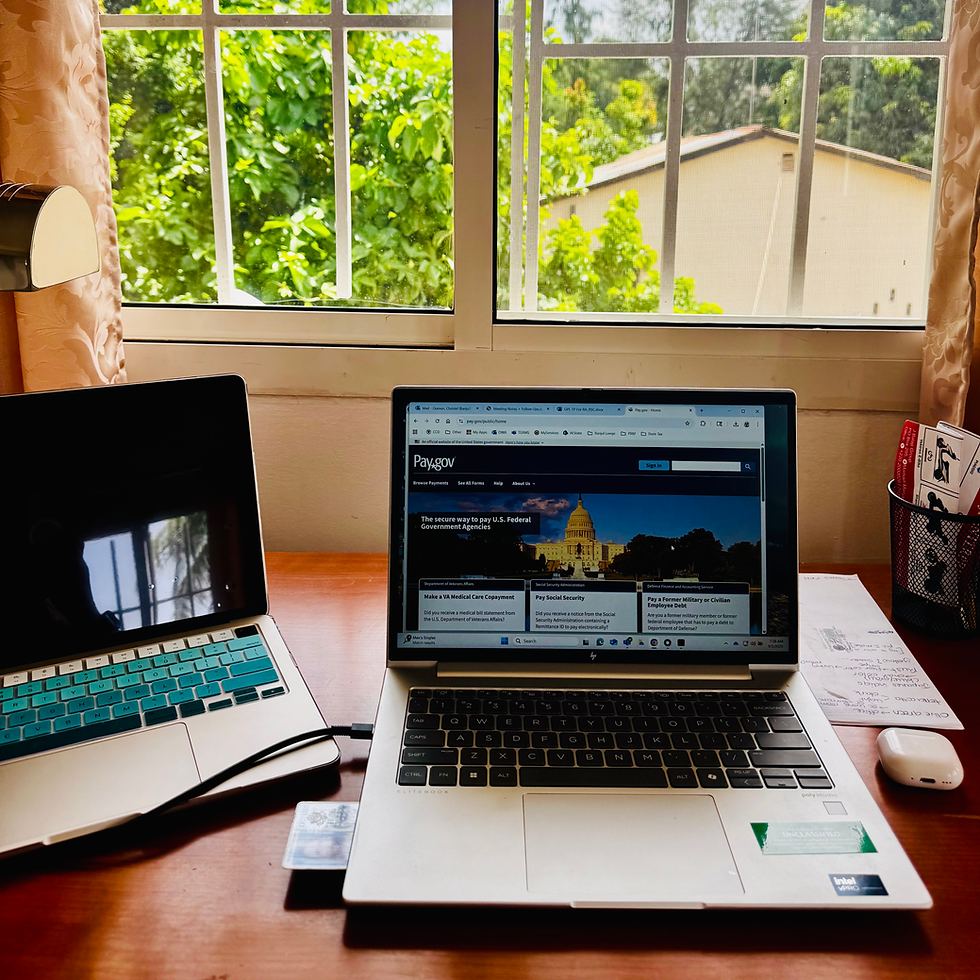The human side of consular work
- Owner

- Nov 2, 2020
- 2 min read
Before I started, I thought consular work would be first and foremost about applying the law. And that consular officers get their satisfaction from doing this correctly and by unmasking the fraudsters, liars, and cheats (and terrorists).
Humanitarian work, I thought, was a thing of my past. Listening to the concerns of poor migrants on the Pakistan-Afghanistan border and bringing it up at the next UNHCR meeting as the embassy’s Refugee Coordinator—I thought that was the height of my “helping people” career.
After today, however, I feel a little differently about this. It’s not that something spectacular happened. I was in the office interviewing, going through cases, and continuing to learn the ropes. But it suddenly dawned on me how much of my time goes to the very same thing I was trying to do with the refugees: helping people in need.

For example, I helped a guy get an emergency passport. He’d failed his studies in Germany, lost his passport, and now he really wanted to go home. He was at our mercy and for that, we had three people working as quickly as possible (with a waiting room full of people) to crank out an emergency passport. Just so the guy could be safe in the knowledge that he was going to make his early morning flight.
I’ve seen much more dire cases this week too. Between American citizens and visa applicants, we were solving people’s problems left and right. Like families separated by the Atlantic Ocean that couldn’t seem to find a way to reunite until we guided them through the process of getting their paperwork in order to make it happen. We also assisted families grappling with suicide, murder, and missing relatives.
When I still worked in the humanitarian sector, I often had the opposite sensation. Ironically, I spent most of my time feeling that despite my noble intentions I could do nothing about the dire situations refugees found themselves in. I would end up feeling detached and disappointed due to the systemic corruption, never-ending conflict, and massive cultural barriers I faced.
So on the whole I’m feeling pretty good about fulfilling my purpose right now. I find migration issues interesting, and dealing all day with people’s passports and travel plans is a good way to keep a finger on the pulse. Of course, I can’t make everyone happy because I’m completely bound by the immigration law, but even that was very similar in my old field of international development. Because when you’re trying to do the right thing for large groups of people, inevitably a few aren’t going to receive the individualized treatment they want or need.







